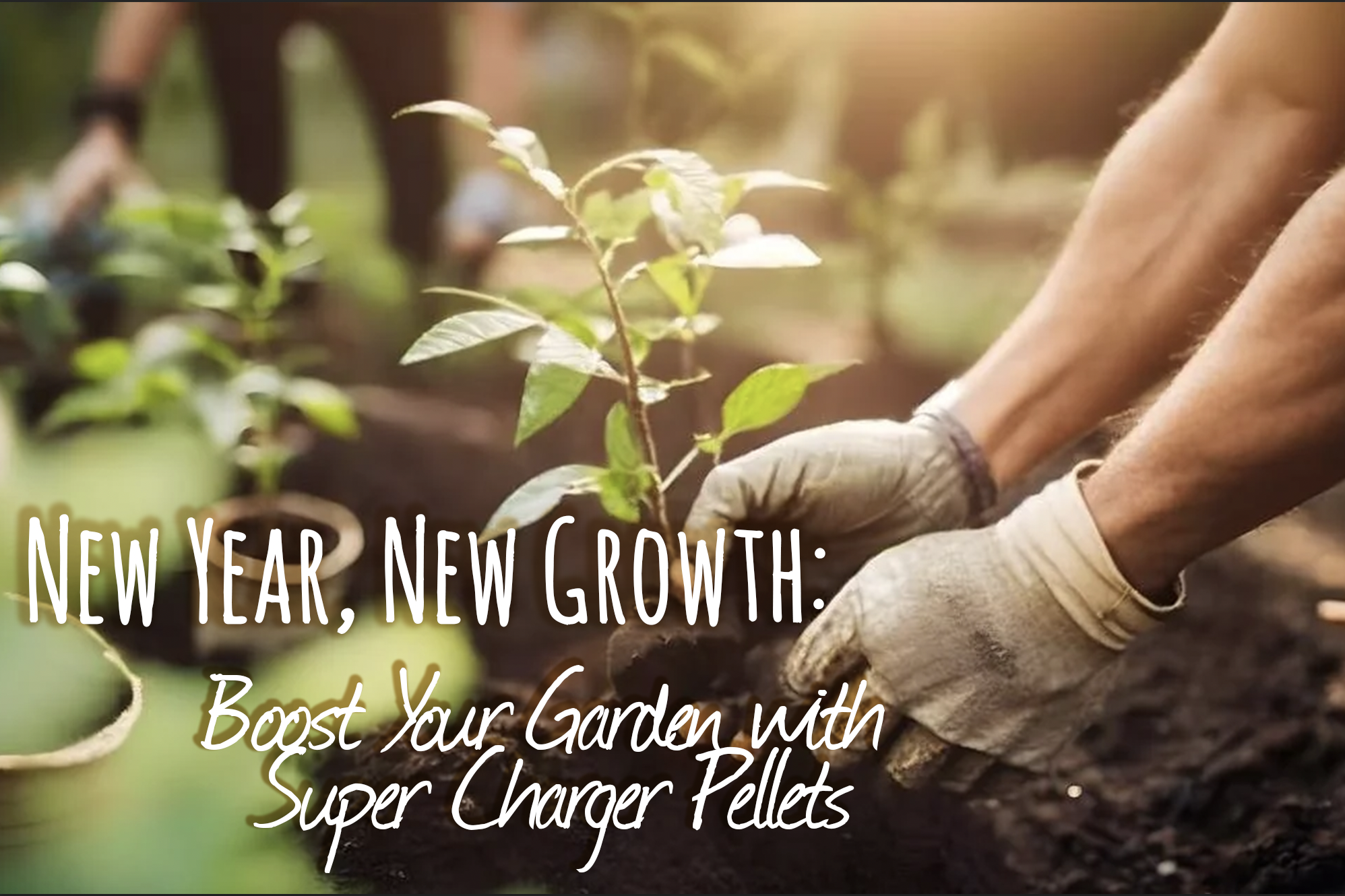Well, another year has rolled around, and the time has come again for us all to contemplate our garden activities for the coming months. Planning this is such an important part of any garden layout – remember its always very beneficial to rotate crops annually. Rotating crops helps maintain or improve soil health and maintain or increase the productivity of the garden over time.
Next time you are in a garden store seeking a good all-round fertiliser for your garden look no further than our very own “Super Charger Pellets.”
Super Charger Pellets have now been available in retail outlets for over a year now and all indications are showing that they are a real winner for the NZ home garden – they are just a good all-round fertiliser useful for all types of gardens.
This fantastic product is made up of a high nutrient blend of Chicken manure, Sheep manure, Blood and bone and humate and has all the components to make a truly great fertiliser. Super Charger is best used by mixing a handful in with soil prior to planting and this will greatly assist in replenishing nutrients used by previous crops. The addition of humate in this product will maximise all the benefits of the available nutrients.
Alternatively, Super Charger Pellets can be used as a general fertiliser on existing plants by spreading a handful or two around the base of the plant.
January – What to do:
Vegetables
- Planting: Sow late summer crops like lettuce, carrots, beetroot, radishes, spring onions, and spinach. These will be ready for late summer or autumn harvest.
- Harvesting: Pick zucchinis, beans, tomatoes, cucumbers, and capsicums regularly to encourage more fruiting.
- Weeding: Keep weeds under control to prevent them from competing with your vegetables for water and nutrients.
- Watering: Water deeply and regularly, ideally early in the morning or evening, to avoid evaporation.
- Mulching: Apply mulch around plants to retain moisture and regulate soil temperature.
Fruit Gardening
- Harvesting: Enjoy fruits like strawberries, raspberries, blackberries, and stone fruits (peaches, nectarines, and plums).
- Maintenance: Remove any fruit showing signs of pests or disease to prevent spread. Net your fruit trees to protect from birds.
- Watering: Ensure consistent watering, especially for fruiting plants, to prevent fruit drop. Also, take note that when humate is mixed in with a good compost it becomes an excellent water saver as the humic in the humate acts like a sponge and can hold its own weight in water up to 7 times! And this is exactly what you need for the dry part of summer that’s just around the corner.
Have a safe and enjoyable New Year holiday and I look forward to sharing with you all some more information on humates throughout 2025!
